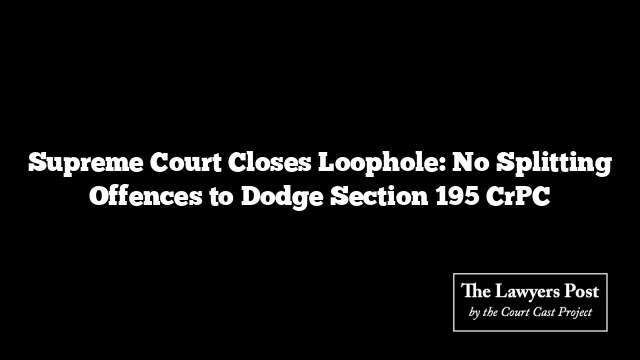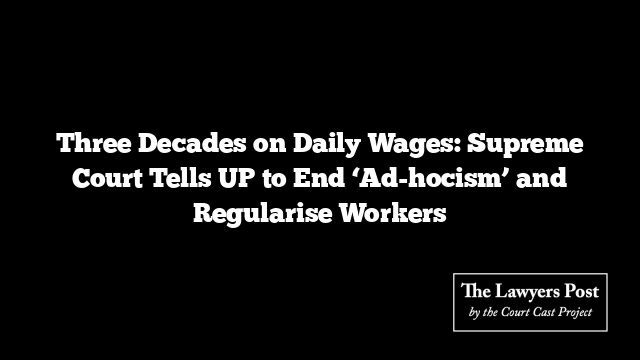The Supreme Court has drawn a firm line—cases linked to offences under Sections 172–188 of the Indian Penal Code (IPC) cannot be cleverly split up to sidestep the mandatory safeguard of Section 195 of the Criminal Procedure Code (CrPC).
A bench of Justices J.B. Pardiwala and R. Mahadevan clarified that a magistrate cannot take cognizance of such offences without a written complaint from the very public servant obstructed in the course of duty. The ruling underscores that the complaint must be in writing and directly from the aggrieved officer; otherwise, the trial collapses at its roots.
The Court was dealing with a case involving a process server who claimed he was humiliated and detained by a Delhi police officer while attempting to serve summons. His account—of being abused, forced to stand with raised hands, and held for hours—was escalated through judicial channels, eventually landing before the Chief Metropolitan Magistrate (CMM). Instead of taking cognizance himself under Section 195 CrPC, the CMM directed an FIR to be registered under Section 156(3) CrPC for obstruction of duty (Section 186 IPC) and wrongful restraint (Section 341 IPC).
The police officer accused in the case challenged this, but the apex court declined to quash the FIR. Instead, it left the door open for him to raise the Section 195 bar at the trial stage. Importantly, the Court made it clear that if obstruction under Section 186 IPC is tightly interwoven with another offence—say, wrongful restraint—both fall within the protective shield of Section 195. They cannot be peeled apart to prosecute one while bypassing the other.
The judgment also clarified a critical nuance: while Section 195 limits cognizance, it does not stop investigation. Police may investigate cognizable offences, but when it comes to obstruction cases, courts can only proceed on the basis of a written complaint filed by the concerned public servant or superior authority.
Laying down guiding principles, the bench stressed that:
- Section 195 is mandatory, not optional—non-compliance nullifies proceedings.
- Offences intertwined with those covered under Section 195 cannot be artificially separated.
- Once investigation is done, the bar under Section 195 kicks in, and the court’s next move must align with procedure under Section 340 CrPC.
The message from the top court is blunt: the statutory shield of Section 195 CrPC cannot be side-stepped through procedural shortcuts.





